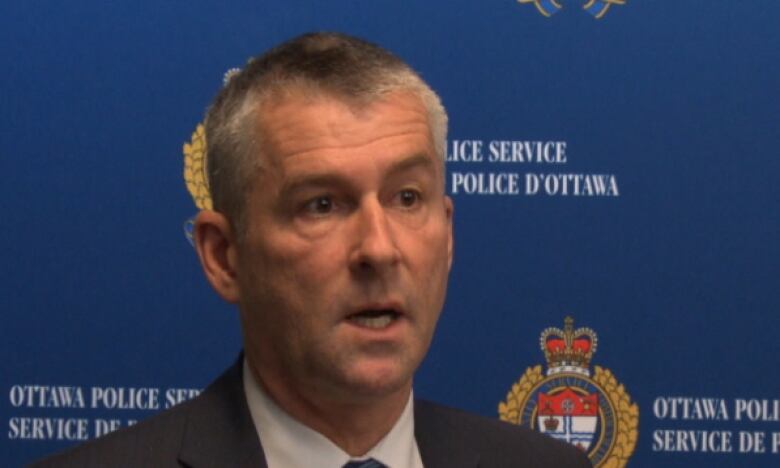Ottawa police guns and gangs strategy under fire
DART team moved into guns and gangs unit to investigate shootings

Critics are questioning an Ottawa police decision to take its most visible anti-gang officers off the streets at a time when the capital is on track to hit record numbers for gun-related homicides.
The Direct Action Response Team (DART) is responsible for monitoring gang members. They do traffic stops and drop in unannounced on the homes of known gang members and drug dealers to ensure they're abiding by their parole and bail conditions. If conditions are broken they make arrests.
But since Dec. 1, DART officers have been removed from doing proactive checks on gangsters. Instead, for the past four months as part of a strategy to make more arrests, the six DART officers have been reassigned to a reactive role, investigating shootings.
Critics charge the move takes the heat off gang members.
It's well known to those engaging in criminal activity that [the DART] unit isn't around. Once it's not visible to them, there's a feeling that they're not being watched or scrutinized.- Matt Skof, OPA president
"It's well known to those engaging in criminal activity that the unit isn't around," says Ottawa Police Association president Matt Skof. He says the move is emboldening gang members.
"Once it's not visible to them, there's a feeling that they're not being watched or scrutinized."
Since DART officers were moved into investigative roles last December there have been 23 shootings and five young people have been shot dead. The number of homicides involving guns in the first three months of this year has already surpassed all of 2015. The most recent victim was 24-year-old Christina Voelzing, who was killed in the crossfire between two shooters on Easter Sunday.
Police say the other four people gunned down — Mohamed Najdi, Marwan Arab, Taylor Morrow-Flint and Nooredin Hassan — had ties to gangs or the city's low level drug trade.
DART reassignment only temporary, says inspector
Ottawa police Insp. Chris Renwick, who is responsible for staffing the gangs and guns unit, acknowledges there are more guns on the streets and more disputes being settled by flying bullets, but says the re-assignment of DART officers four months ago was necessary to deal with the backlog in unsolved shootings.

"This is only a temporary measure, but necessity dictates that we need their expertise on the investigative side … they have knowledge of people and expertise in gangs and firearms. They're the logical ones to use," he said.
The transfer of DART members and officers from other units such as patrol and surveillance has allowed the force to double the number of staff investigating shootings.
Since December, the bolstered guns and gangs unit has seized 17 illegal guns and charged 24 people. Renwick does not have a time frame for putting DART back in action, but says arrests can be just as effective of a deterrent to gun violence as proactive strategies.
Proactive policing saves money, says U of O criminologist
That's a premise University of Ottawa Criminologist Michael Kempa challenges.
"Detection and arrest rates for crimes already committed are quite low across all police forces," says Kempa, adding that proactive preventative measures are also cheaper than investigative ones and should be pursued in a climate where police budgets are being cut.

Renwick says the proactive work of monitoring gang members is still being done by neighbourhood patrol officers who know where the gang members live and operate.
Skof accuses the police executive of inflating the guns and gangs unit at the expense of other divisions.
"You're going to end up with the depletion of resources from another section," he says.
Skof says the situation isn't expected to improve until next year. Although the Ottawa Police Service will hire 25 new recruits this year, they still have to be trained and won't be fully deployed until 2017.